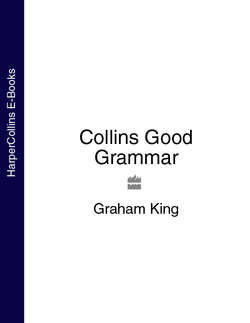Читать книгу Collins Good Grammar - Graham King - Страница 27
Pronouns
ОглавлениеPronouns are stand-ins for nouns and noun phrases, and are especially useful for avoiding repetition:
| WITHOUT A PRONOUN | He saw James in the bar, and went over to meet James. |
| Was I aware that Marcia was married?Of course I knew Marcia was married. | |
| WITH A PRONOUN | He saw James in the bar, and went over to meet him. |
| Was I aware that Marcia was married.Of course I knew she was. |
You can readily see that pronouns are indispensable, and they (pronoun) form a major part of our (pronoun) everyday speech.
We divide pronouns into personal pronouns (I, me, you, he, she, it), possessive pronouns (mine, ours, his, theirs), reflexive pronouns (myself, themselves), demonstrative pronouns (this, these, those), interrogative pronouns (who? what? which?), relative pronouns (who, whom, which, that), indefinite pronouns (all, any, many, everyone, few, most) and reciprocal pronouns (one another, each other).
If you experienced a slight prickly sensation when glancing through those definitions the reason is most likely that pronouns can create more grammatical havoc than any other class of words. But when you’ve studied the detailed section on pronouns on page 77 you’ll feel much more at home with these useful surrogate nouns.
